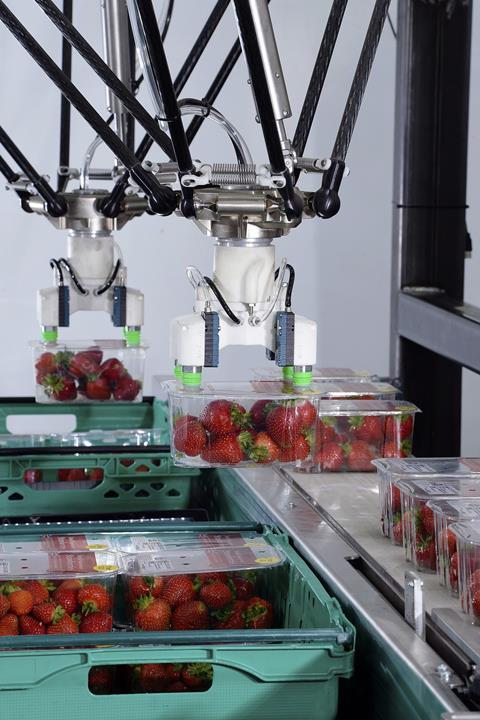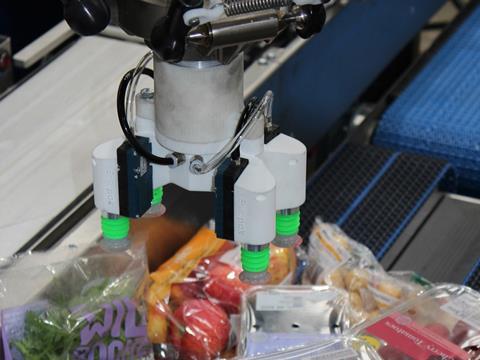
Brillopak director David Jahn highlighted the crisis likely to face farmers, fresh produce and soft fruit packers as a result of Brexit and rising labour costs – and how automated case loading can help mitigate these challenges. Tim Sykes reports from the PPMA Show.
Between May to September each year, more than 28,000 EU workers come to the UK to harvest, process, grade and pack soft fruit alone. A recent report by British Summer Fruits reports that with wages representing a significant portion of the costs for packhouses, retail prices for items like strawberries and raspberries could rise by over 30%, squeezing profit margins further.
“Improving packing productivity and economic output per hour will be central to boosting efficiency and offsetting fresh produce price rises,” Mr Jahn observed. “With packhouses grappling with this imminent EU labour crisis, combined with rising minimum wages, many Brillopak customers are seriously exploring automated case loading systems.”
To demonstrate the agility that seasonal packhouses can realise, Brillopak is demonstrating its new Unipick P160 high speed case and crate packer at PPMA (stand C24). Specifically designed for the fresh food sector, specifically tray seal punnets, flow wrap and vertical form fill seal products, including soft fruits, top fruits, root vegetables and meat products, the machine marks a step change in automation performance.
The P160 not only packs at high speeds, averaging over 100 packs per minute, the two three-axis robot spider arms individually place each pack one by one gently into a retail crate. Highly dexterous, with a reach of 1130mm, this gentle handling helps to prevent bruising and damage to delicate and perishable fruit and vegetables, which contributes to the 100,000 tonnes of avoidable manufacturing UK food waste each year.

“Traditionally, to achieve high speeds like this in case loading, machines pick layers or rows of product,” explained Mr Jahn. “However, this can lead to fruit punnets and flow wrapped fresh items like apples being dropped, which requires human intervention and interruption to the packing line, plus leads to significant waste which impacts profits.”
For many products, single pack picking is the safest and fastest way to meet retailer specified case loading patterns and deliver good presentation, notes David.
Brillopak’s P160 system incorporates two Omron three-arm Delta robots, both with quick release end-of-arm robot heads for different product types. These enable packhouses to extend their traditional seasonal work windows to year-round packing operations and flex quickly to multiple product types and sizes, resulting in a quicker return on investment.
For food factories and packhouses tight on space, the machine’s compact footprint, 3.2 metres by 1.5 metres, makes it an estimated 15% smaller than any other dual robot layer-based automated handling system currently on the market.
The end of line packing system can be integrated with a Brillopak crate destacker and palletiser for increased efficiency.
“The UK has an enviable reputation for harvesting quality fresh produce and just over half the food we eat in the UK originates from here,” notes David. “Today, fresh produce is a key driver of retail store traffic and therefore has an influence on the entire weekly shopping spend. Most are highly perishable products and should be packed as close to the point of consumption as possible. The popularity of soft fruits continues to climb, and by 2020 an additional 2,000 seasonal workers will be required to meet demand.”
To a large extent, packing into cases remains a manual task, making the UK’s over-dependence on seasonal EU labour a worry. Thankfully, high-speed technology like the P160 case loader, makes automation financially viable, even for seasonal and SME packhouses.
“Depending on the application, ROI for the P160 can be between one and three years. By delivering consistent presentation on all types of punnets, flow wrap and vertical form fill seal products, packhouses can seek out and exploit new business opportunities,” concluded Mr Jahn.













